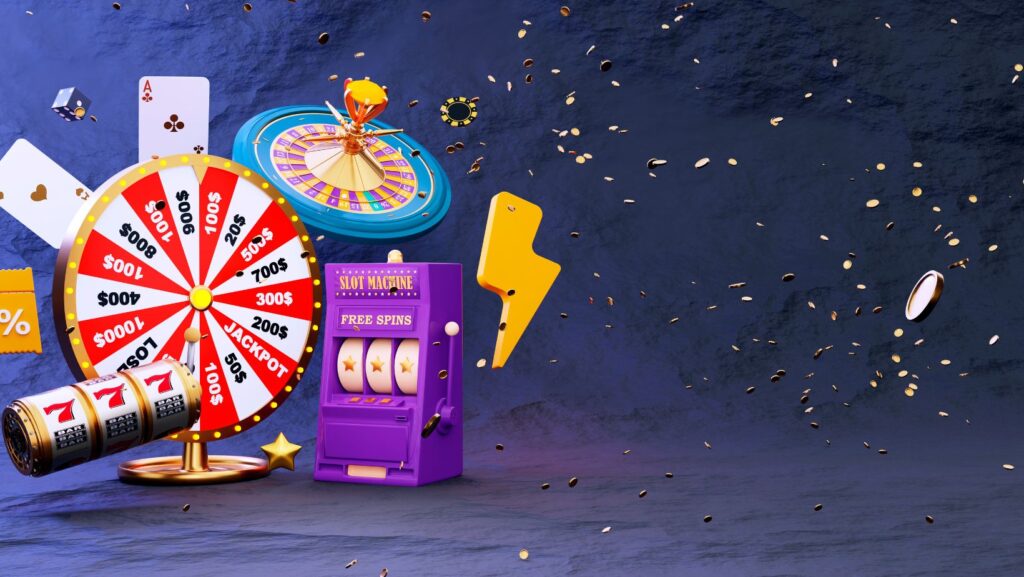Real money online slots have become immensely popular in the world of online gambling, attracting millions of players from around the globe. Beyond the simple mechanics of spinning reels and chasing jackpots, there lies a complex interplay of psychological factors that influence players’ behaviors and motivations.
In this exploration of the psychology of real money online slots, we delve into the underlying drivers that compel players to engage with these games and the psychological mechanisms at play.
The Thrill of Anticipation:
One of the primary psychological drivers behind real money online slots is the thrill of anticipation. The moment before spinning the reels creates a sense of excitement and expectation, as players eagerly await the outcome of each spin. This anticipation activates the brain’s reward pathways, releasing dopamine and other neurotransmitters associated with pleasure and arousal.
The uncertainty of outcomes in slot games, coupled with the possibility of winning big, intensifies this sense of anticipation, creating a highly addictive and compelling experience for players. The allure of hitting a jackpot or triggering a lucrative bonus round keeps players coming back for more, as they chase the elusive thrill of a big win.
Reinforcement and Reward:
Real money online slots employ various psychological techniques to reinforce player behavior and reward them for their engagement. The intermittent reinforcement schedule, commonly used in slot games, involves delivering rewards at unpredictable intervals, mimicking the unpredictable nature of gambling outcomes in real life.
This reinforcement schedule exploits the psychological principle of operant conditioning, where behaviors are strengthened through positive reinforcement. Each small win, near-miss, or bonus feature triggers a release of dopamine, reinforcing the behavior of playing slots and encouraging players to continue spinning the reels in search of more rewards.
Cognitive Biases and Illusions of Control:
Players of real money online slots are also susceptible to cognitive biases and illusions of control that influence their decision-making and perception of outcomes. The illusion of control refers to the belief that one can influence or control random events, such as the outcome of a slot spin, through skill, strategy, or superstition.

This illusion of control is reinforced by the presence of features such as “hold” and “nudge” buttons in some slot games, which give players the illusion of agency over the outcome. Similarly, the gambler’s fallacy, where players believe that past outcomes influence future results, can lead to irrational decision-making and excessive gambling behavior.
Social and Emotional Factors:
Beyond the individual psychology of players, social and emotional factors also play a significant role in driving engagement with real money online slots. Social influences, such as peer pressure, social norms, and marketing messages, can shape players’ attitudes and behaviors towards gambling.
Emotional factors, such as stress, boredom, loneliness, or the desire for excitement and entertainment, can also motivate players to seek out the emotional highs and lows provided by slot games. For some players, gambling serves as a form of escapism or distraction from life’s challenges, providing temporary relief from negative emotions or stressors.
Illusion of Near-Misses and Losses Disguised as Wins:
Another significant psychological factor in real money online slots is the illusion of near-misses and losses disguised as wins. Near-misses occur when the symbols on the reels align closely with a winning combination but fall just short of a payout. These near-misses create a sense of almost winning, tricking players into believing that they were close to a jackpot and encouraging them to continue playing in pursuit of a win.
Similarly, losses disguised as wins occur when players receive a payout that is less than their original wager, yet the game celebrates the outcome as a win with flashing lights and sound effects. This deceptive feedback can reinforce the belief that the player is winning despite actually losing money, leading to continued play and increased spending. The illusion of near-misses and losses disguised as wins exploits players’ cognitive biases and contributes to the addictive nature of real money online slots.
Conclusion:
In conclusion, the psychology of real money online slots is a complex and multifaceted phenomenon shaped by various psychological, social, and emotional factors.
The thrill of anticipation, reinforcement and reward mechanisms, cognitive biases, and social influences all contribute to the allure and addictive nature of slot games. To learn more about the slots sites, go through this link: https://www.outlookindia.com/outlook-spotlight/best-real-money-online-slots-top-10-slot-sites-for-real-money-ranked-by-bonus-rounds-cool-graphics-and-more-news-274811
Understanding these psychological drivers is essential for both players and regulators to promote responsible gambling practices and minimize the risk of harm associated with excessive gambling behavior.

By recognizing the psychological mechanisms at play and adopting strategies to mitigate their impact, players can make informed decisions about their gambling habits, while regulators can implement measures to protect vulnerable individuals and ensure a safe and enjoyable gambling environment for all.


More Stories
Ranking Playable Casinos in Normal Video Games Throughout The Years
Level Up Your Game: High Tips to Boost Focus
How Brands Are Engaging Audiences Within Gambling